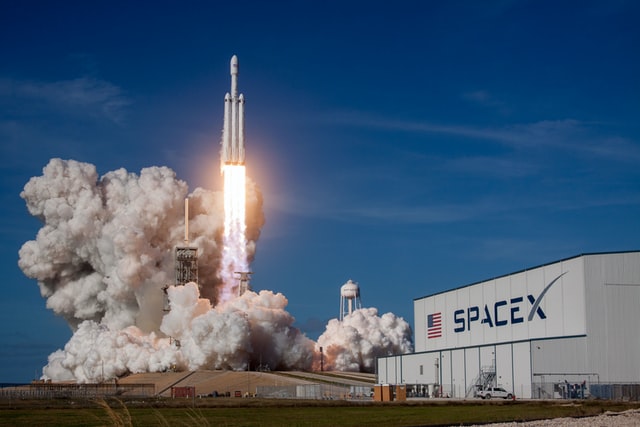
The Climate Crisis: why global corporations want us to believe it’s our responsibility to save the world.
Article by Molly Wells
When it comes to the climate crisis, as individual consumers we are constantly confronted with how our everyday actions are responsible for the damage and how we must change. We are told to, for example, go vegan, not use plastic straws and change our travel habits. To (so gracefully) help us achieve these goals, we have companies providing products for us: McDonald’s offers us the vegan ‘McPlant’, Amazon offers us metal straws and Tesla offers us an £80,000 electric car. However, it does not take long to realise that sustainable consumerism, which these billion-dollar companies so enjoy promoting, is just another form of profit generation for them and acts as a mechanism to deflect from the true source of irreversible global heating: global corporations.
Of course, it cannot be overlooked that individual action does promote some good towards reducing greenhouse gas emissions, but, as Fibieger-Byskov (2019)[1] points out, the only way this could actively generate the systemic change needed to combat the crisis is by changing consumption patterns on a large-scale in order to influence companies to change their production patterns to a more sustainable method. Alas, the capitalist structure that shapes global society has ensured that a collective, global movement of individuals actively agreeing to substantially alter their consumer habits is near impossible. Hence, the rich keep getting richer and the rest face the grim consequences of irreversible climate change whilst bearing the brunt of responsibility.
Capitalism is an economic system founded on the concept of neoliberalism. This ideology ‘asserts the power and importance of private entrepreneurship, private property rights, the freeing of markets and the freeing of trade’ (Urry 2009)[2]. In short, a capitalist society promotes the generation of profit and wealth above all else. Where right-wing politicians and promoters of neoliberal values argue this allows everyone a fair chance to work for success, in reality, capitalism has left the world in a state of mass economic and social inequality, highlighted by the fact that the 26 richest billionaires own as many assets as the 3.8 billion poorest people (Elliot 2019)[3]. This obsession with profit has led to the creation and domination of a consumer culture that requires mass production and consumption which only grows with the continual extreme growth in population. This has created a global economy dependent on cheap oil (Urry 2009), consequently producing excessive greenhouse gas emissions and causing a radical increase in the global temperature, which promises devastating repercussions for the world and human existence as we know it. We have repeatedly been told we do not have much time left until this damage is irreversible and that we must make everyday changes to our lives to achieve this. So why has nothing changed?
Well, this is because the idea that we can continue with “business as usual” while changing aspects of capitalist consumption just isn’t enough. Schnaiberg (1980) warned us that production has much more power over the ecosystem than consumption. This is emphasised today by the fact that 100 companies are responsible for emitting over 70% of the world’s greenhouse gas emissions since 1988 (Riley 2017)[4]. Ironically, even while reading articles warning about the dangers of mass production and consumption while researching for this blog, I was bombarded with adverts for clothes that I could order to arrive within two days, highlighting the systemic depth to which consumerism, and thus mass production, is rooted. So why, as individuals, are WE still made to feel like it is our sole responsibility to undo the damage THEY continue to inflict on the Earth? Because, in our society, money and power are very much interchangeable. While Jeff Bezos is able to fly into space and avoid all responsibility, we back on Earth have been systemically manipulated to feel it is down to us to save our planet.
The climate crisis continues to prove that the mega-rich can generate profit from anything, tapping into fear and desperation to sell us products that we “need” to undo the mess created by a system that only benefits them. Global corporations accepting responsibility and genuinely changing methods of production would mean sacrificing wealth, wealth that will save them when the climate gets to a life-altering point of no return while the rest of us must reap the consequences. If a significant change is not made now, these global corporations and billionaires will have blood on their hands.
References
[1] https://www.fastcompany.com/90290795/focusing-on-how-individuals-can-stop-climate-change-is-very-convenient-for-corporations
[2] https://journals-sagepub-com.manchester.idm.oclc.org/doi/pdf/10.1111/j.1467-954X.2010.01887.x
[3] https://www.theguardian.com/business/2019/jan/21/world-26-richest-people-own-as-much-as-poorest-50-per-cent-oxfam-report#:~:text=3%20years%20old-,World’s%2026%20richest%20people%20own,as%20poorest%2050%25%2C%20says%20Oxfam&text=The%20growing%20concentration%20of%20the,half%20of%20the%20planet’s%20population.
[4] https://www.theguardian.com/sustainable-business/2017/jul/10/100-fossil-fuel-companies-investors-responsible-71-global-emissions-cdp-study-climate-change
Elliot, L. (2019). ‘World’s 26 richest people own as much as poorest 50%, says Oxfam’, The Guardian, 21 January. Available at: https://www.theguardian.com/business/2019/jan/21/world-26-richest-people-own-as-much-as-poorest-50-per-cent-oxfam-report#:~:text=3%20years%20old-,World’s%2026%20richest%20people%20own,as%20poorest%2050%25%2C%20says%20Oxfam&text=The%20growing%20concentration%20of%20the,half%20of%20the%20planet’s%20population. (accessed: 12 March 2022)
Fibieger-Byskov, M. (2019). ‘Focusing on how individuals can stop climate change is very convenient for corporations’, Fast Company, 1 November. Available at: https://www.fastcompany.com/90290795/focusing-on-how-individuals-can-stop-climate-change-is-very-convenient-for-corporations (accessed: 12 March 2022).
Riley, T. (2017). ‘Just 100 companies responsible for 71% of global emissions, study says’, The Guardian, 10 July. Available at: https://www.theguardian.com/sustainable-business/2017/jul/10/100-fossil-fuel-companies-investors-responsible-71-global-emissions-cdp-study-climate-change (accessed: 12 March 2022).
Schnaiberg, A. (1980). The Environment: From Surplus to Scarcity. New York ; Oxford : Oxford University Press.
Urry, J. (2009). ‘Sociology and climate change’, The Sociological Review, 57(2), pp.84-100. Available at: https://journals-sagepub-com.manchester.idm.oclc.org/doi/pdf/10.1111/j.1467-954X.2010.01887.x (accessed: 11 March 2022)

0 Comments